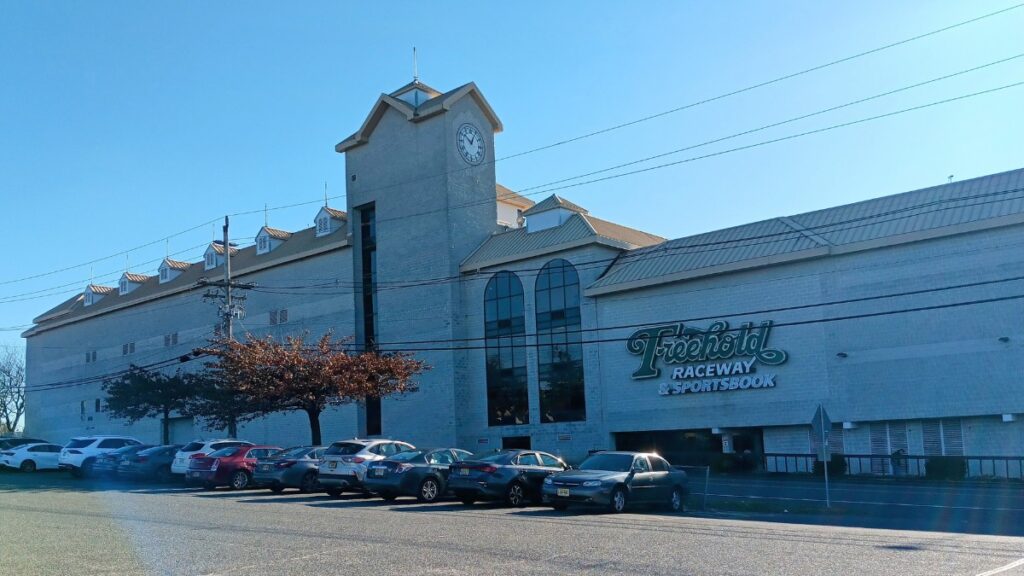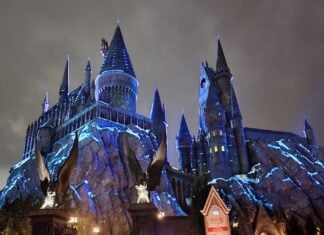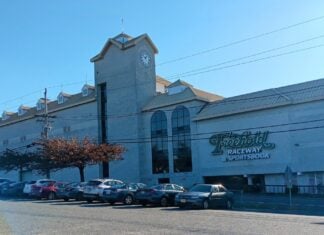
Freehold Raceway closed its doors for the last time at the end of 2024, and it marked the end of a 170-year legacy in New Jersey.
More than 1,000 spectators attended the final races, where they paid their respects and held on to cherished memories.
For many, the racetrack was more than a venue for betting—it was a tight-knit community.
Freehold Raceway, once a cornerstone of Monmouth County horse racing, had become a place where tradition is honored and friendships are made.
However, as land values increased and attendance steadily dropped, management decided it was time to close the track.
Since its opening in 1854, Freehold Raceway has been synonymous with harness racing.
Nevertheless, dwindling attendance and the increasing potential value of the land beneath the racetrack spelled its inevitable closure.
The loss was particularly hard for people who had spent years at the track, with many describing it as a family.
It was a place where the same people gathered every week, and the emotional connection was undeniable.
The final day felt like saying goodbye to a piece of their history, as the memories created over decades could not easily be replaced.
As you can imagine, the closure was tough for those involved in the horse racing industry.
Many reflected on the sport’s rich history, which includes its survival through global conflicts, recessions, and even a pandemic.
Despite all its challenges, the closure felt like an unjust ending for something that had been a staple for so long.
Though Freehold Raceway’s closure is a significant loss, industry insiders are hopeful about the future of horse racing.
The decline in attendance at traditional racetracks like Freehold has been offset in part by a rise in online sports betting.
In 2022, U.S. bettors set a record, wagering $12 billion on horse races.
The surge in mobile betting platforms is making horse racing more accessible to younger generations, who are increasingly engaging with the sport.
The use of sports betting guides and mobile apps is helping newer fans navigate the complexities of racing in a more approachable way.
To this day, the Kentucky Derby still stands as the crown jewel of American horse racing.
Churchill Downs, the track that hosts the Derby, generates millions of dollars in revenue each year.
With its ability to attract die-hard fans, casual attendees, and everyone in between, the event has become a cultural experience––to the point that many people view it as an event to tick off their bucket list.
While the Kentucky Derby thrives, other tracks across the country struggle to maintain the same level of fan engagement.
Wagering on pari-mutuel races has decreased by 55% since 2000, and the number of owners and trainers in the U.S. has sharply declined.
More high-profile events with larger purses may be necessary for the sport to thrive.
The idea is that just as professional sports rely on star players to generate excitement, horse racing needs similar high-profile events to attract audiences beyond the major races like the Derby.
The future of horse racing may depend on the industry’s ability to modernize and meet current expectations.
Lisa Lazarus, CEO of the Horseracing Integrity and Safety Authority (HISA), believes that transparency and integrity are crucial to the sport’s future.
HISA, established to oversee horse racing across state lines, has significantly improved safety and welfare standards.
By ensuring consistency and transparency, the agency aims to rebuild public trust in the sport.
As safety and ethics continue to improve, new fans and investors are expected to be drawn to the industry.
Despite Freehold Raceway’s closure, the industry remains optimistic about horse racing’s future.
Many tracks are investing heavily in modernizing their facilities.
Belmont Park is undergoing a $500 million renovation, and Churchill Downs is spending $300 million to enhance its grandstand and paddock.
The sport’s long-term success will depend on the modernization of these facilities, which are seen as outdated by today’s standards.
Adding mobile apps and embracing new technology will also be essential for attracting younger fans who expect a more contemporary experience.
Dennis Drazin, CEO of Monmouth Park, believes that racetracks must diversify their revenue streams to succeed.
Embracing gaming, entertainment, and improved fan experiences will be key to the sport’s growth.
The surge in national television coverage has also played a crucial role in expanding the sport’s audience.
Networks like Fox Sports air over 1,000 hours of horse racing each year, which has contributed to a big increase in online wagers.
Although Freehold Raceway’s closure is an unfortunate chapter in horse racing’s history, the future of the sport looks promising.
With increased investment in facilities, the rise of online sports betting, and a younger, more engaged fanbase, the industry appears to be entering a new era—one where tradition meets modern innovation.
The key to success will lie in the sport’s ability to adapt and embrace new technology while still honoring the rich history that has made horse racing such an iconic part of American culture.









